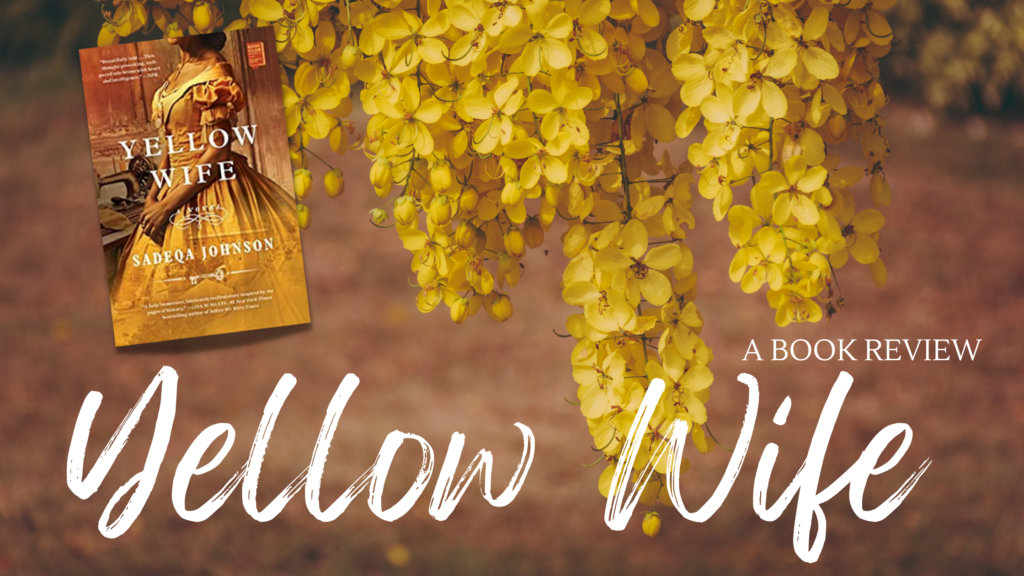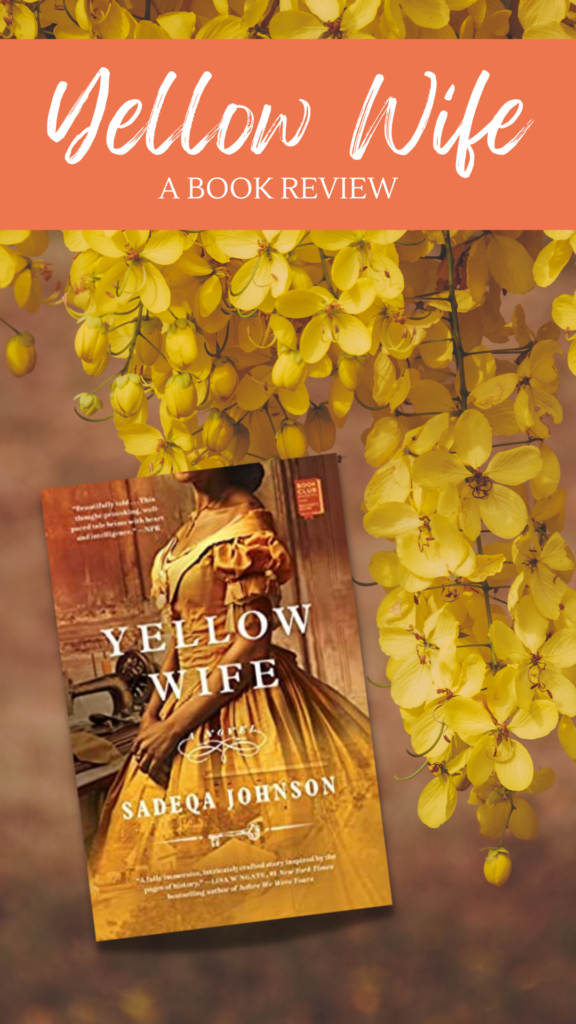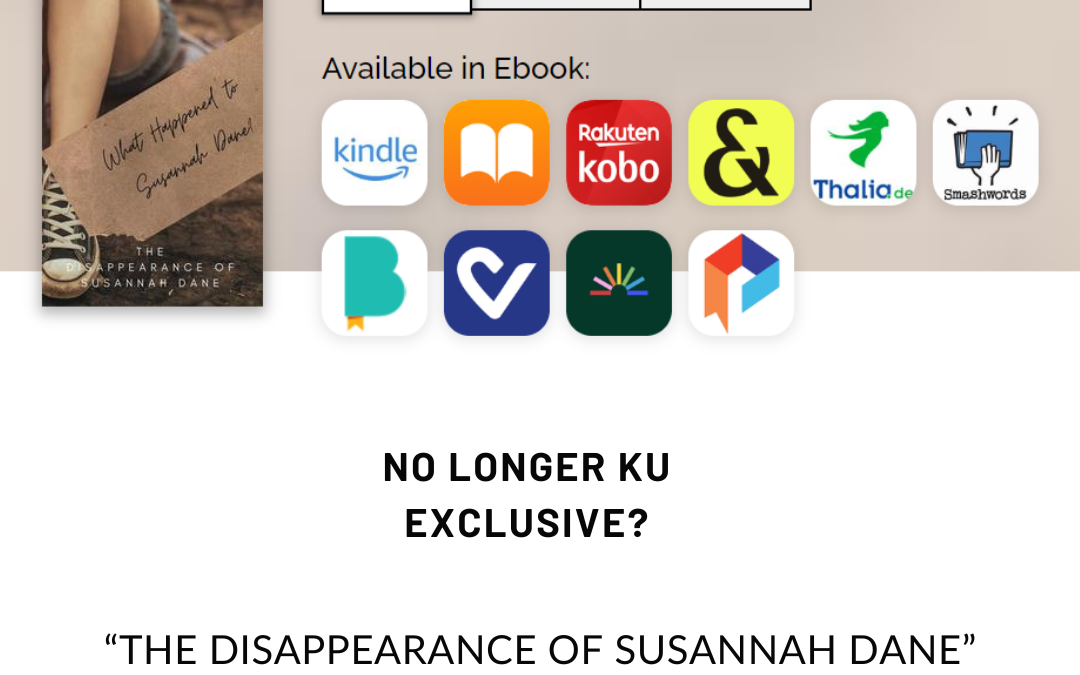I don’t remember exactly how I came across Yellow Wife. Maybe it was a suggestion from Audible after I finished reading Paper Wife by Laila Ibrahim. However I stumbled upon it, I’m so glad that I did. This book was so powerful and moving. After I finished listening to the audiobook, I just sat down on a chair in my living room and cried. I wept straight through the author’s note, which was also fascinating. It’s been a long time since I have felt that invested in a book.
It would be an understatement to say that I liked this book. I don’t even think that is the right word to describe it. I was completely absorbed by The Yellow Wife. I hung onto the narrator’s every word and often, I found my heart thumping right out of my chest. I was in the middle of this book when I spoke on The PickyBookworm podcast and I had to mention it because I literally couldn’t stop listening to this book.
I’m going to go into some spoiler details below the book info here, but if you are looking for something to read (and especially if you are looking for an audiobook,) I suggest that you just dive right into the story. There’s nothing I can say about this book that it doesn’t accurately say for itself. Sadeqa Johnson does such a beautiful job that from chapter one, I was hooked.
Even if historical fiction is not your thing, I can’t imagine you could walk away from The Yellow Wife without becoming invested in the story.

Yellow Wife by Sadeqa Johnson
Book Description:
A Best Book of 2021 by NPR and Christian Science Monitor
Called “wholly engrossing” by New York Times bestselling author Kathleen Grissom, this “fully immersive” (Lisa Wingate, #1 bestselling author of Before We Were Yours) story follows an enslaved woman forced to barter love and freedom while living in the most infamous slave jail in Virginia.
Born on a plantation in Charles City, Virginia, Pheby Delores Brown has lived a relatively sheltered life. Shielded by her mother’s position as the estate’s medicine woman and cherished by the Master’s sister, she is set apart from the others on the plantation, belonging to neither world.
She’d been promised freedom on her eighteenth birthday, but instead of the idyllic life she imagined with her true love, Essex Henry, Pheby is forced to leave the only home she has ever known. She unexpectedly finds herself thrust into the bowels of slavery at the infamous Devil’s Half Acre, a jail in Richmond, Virginia, where the enslaved are broken, tortured, and sold every day. There, Pheby is exposed not just to her Jailer’s cruelty but also to his contradictions. To survive, Pheby will have to outwit him, and she soon faces the ultimate sacrifice.
Description taken from the Amazon listing for Yellow Wife.
Book Title: Yellow Wife (listed as The Yellow Wife on some websites)
Author: Sadeqa Johnson
Genre: Historical fiction
Narrator: Robin Miles

The Narration
Robin Miles does such a wonderful job at narrating this story. There is a lot of complexity in just the tone and delivery of so many scenes. Pheby, the main character, is often torn in her statements. She might fake a smile and try to sound polite for the jailer, but internally, she will be conflicted. Somehow Robin is able to translate this so perfectly that the entire novel played out like a movie in my head.
Robin Miles is masterful in her tone used for the jailer, for the children, and the sounds. There is one scene in particular, where the jailer is sadistically whipping Essex where the narrator repeats the word thwap over and over. This delivery is so masterful that I felt sick hearing it. I am not even sure how to describe it, but it just solidified that horror that was taking place. It was such a complex scene and it was so hard to listen to, but Robin manages to never lose the intensity of the moment.
The Story
Right from the gates, Yellow Wife sets itself apart from other historical fiction works. There’s something about Pheby that is so captivating and feels so personal. She is imperfect and is faced with so many hard choices. She makes mistakes. She feels like a real person in every possible way. And the author carries out the same amount of care and craft with each character that is introduced, and there are many.
Sometimes when you read a book with a long cast list of characters that seem to come and go, the way that these characters do, it is easy to lose interest in them. To harden yourself from becoming invested in their story because there’s a good chance that they will be taken out of the story as quickly as they are brought in. But the author gets around this issue completely by making the main character, Pheby, care about the stories of each character. Her heart yearns to help them and you can’t help but feel the same way.
The hardest part of this book for me surrounds the issue of infant and child death. I don’t like to consume fiction that throws in these factors for the sake of shock value, but I didn’t feel that way about the many deaths of babies and young characters in this book. Each story felt important. I almost felt like it is better to know the suffering than to pretend that these types of things have never happened because unfortunately, they have.
Pheby gives birth to so many children throughout the book, most of them are the jailer’s children, but her first son, Monroe was Essex’s baby. This fact alone means that his fate hangs precariously in the balance. And because there is already a precedent for the children of enslaved people to be “nothing more than furniture” and regularly are mistreated (and even disposed of), I sat on the edge of my seat for this entire book, worried sick about Monroe’s future. And I think that is intentional by the author. It forces us to feel worried for Monroe and sympathize with Pheby. She is constantly trying to come up with ways to protect her son, but the jailer is likewise coming up with ways to tear them apart.
Here’s where I’ll include the spoilers. I was so shaken by Monroe’s story that when we get to the end of it, Pheby is able to pull off nothing short of a miracle and help him escape with Essex. I was so relieved by the epilogue, where we learn that Monroe was able to live a somewhat normal life in Canada. Even though I hated that Pheby and Monroe never got to live in freedom together, I knew that her sacrifice is what got him to safety.
This novel is truly a story about the sacrifice of mothers during one of the most harrowing periods of American history. Pheby’s own mother suffered to provide her safety and likewise, Pheby was willing to move Heaven and earth to keep her own children safe. It’s difficult to put yourself in the shoes of women that had absolutely no way of preventing pregnancies, were raped by people that don’t even consider them human, and were forced to give birth over and over. And still, find it in their hearts to love their babies.
There are a lot of traumatic, sad, and hopeless chapters throughout this novel. But there are also moments that capture joy and family, togetherness, community, and the resilience of the human spirit. This book is so well done and I will definitely read more from Sadeqa Johnson in the future.





0 Comments